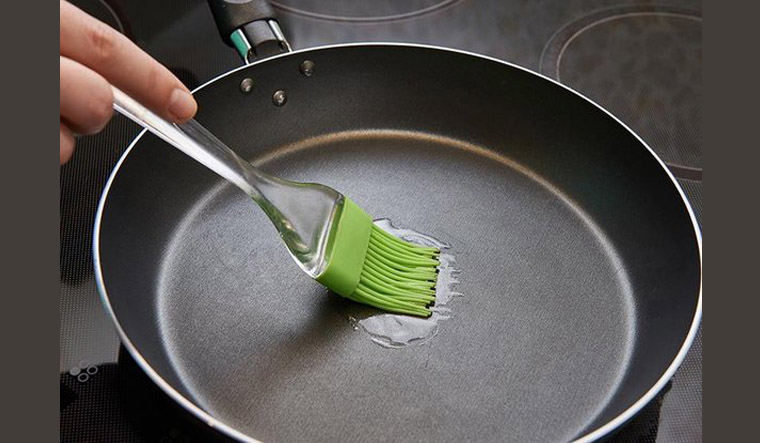Brace yourself for pots and pans clanging at each other mid fight. The government’s own Indian Council of Medical Research (ICMR) has set the cat among the pigeons in the home appliance industry with its recent food and dietary guidelines.
ICMR’s guidelines have stressed the importance of not just healthy eating and nourishment requirement specifics, it also highlighted the likely dangers associated with cooking with non-stick pans, now virtually a staple in urban households across the nation.
While makers of non-stick pans are going to great lengths to highlight the safety of their products, it has also had makers of other homewares, coming out with claims of how their products are way better.
Rajamani Krishnamurti, president of the Indian Stainless Steel Development Association said, “ICMR’s recent recommendations are a welcome step towards educating the consumers on harmful effects of such coating. At high temperatures, these coatings can emit toxic fumes and particles. Stainless steel cookware, on the other hand, is considered safer because it does not use non-stick coatings. (It) is a durable and non-reactive material, which means it doesn't leach harmful chemicals into your food, even at high temperatures. It's also easy to clean and doesn't require special utensils to avoid scratching the surface. Choosing stainless steel cookware can provide peace of mind about the safety of your cooking equipment and help you avoid potential health risks associated with non-stick coatings.
ICMR’s notification last month had re-ignited a long-pending debate on the safety, or the lack of it, of non-stick cooking vessels. There have been many research findings claiming that non-stick cookware usage causes cancer, though there have been arguments equally saying those were not conclusive enough.
However, a government body coming out with precautions on the use of teflon-coated cookware, generally known as non-stick, has alarmed homeware as well as the general population alike. Teflon is a synthetic compound comprising carbon and fluorine. The argument against it has been that cooking using it at high temperatures releases toxins, contaminating food with polyfluoroalkyl substances, minute plastics etc.
ICMR doesn’t come out with a straightforward ban per se, but precautions citizens to err on the side of caution. It warns that non-stick cookware coated with teflon should not be heated beyond 170 degrees Celsius, or left on the burner for extended periods. This is because it then releases the noxious fumes from the coating. ICMR also particularly emphasized the importance of replacing non-stick cookware when the coating starts wearing off.
However, makers of non-stick cookware swear their products are safe. Ravi Saxena, CEO and founder of the brand Wonderchef said, “(We) use non-stick coating that is completely food safe and healthy. The coating is free from PFOA and heavy metals. Moreover, in good quality pans, the coating must not come off for years.”
There has been talk of moving back to earthen pots, cast iron griddles and others since ICMR guidelines came out, but as always, the convenience of cleaning and maintaining has always been a problem with these ‘older’ modes of cooking.



